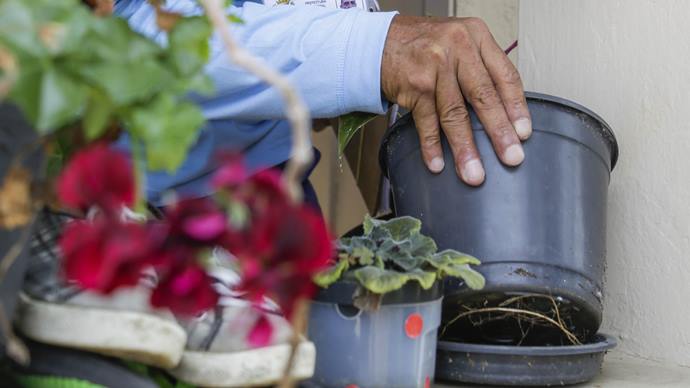With the advent of summer, be careful to avoid spreading Aedes aegypti, carriers of diseases such as dengue, zika, and chikungunya, should be multiplied. Hot and rainy days create an ideal environment for mosquito populations.
Any container with accumulated water, even very small ones, such as bottle caps, can become a breeding ground for Aedes.
Know what to do
the Municipal Secretary of Health The SMS provides guidance on how to conduct a proper check to avoid mosquito breeding sites during year-end holiday trips.
“The mosquito develops very quickly, about a week, the female lays eggs, which turn into larvae, and then comes the winged stage, the mosquito itself, especially in hot weather,” explains the coordinator of the municipal program to combat the aedes, Tatiana Faraco.
Even on short trips, it’s essential to get rid of containers in which water can accumulate. In order not to encounter unwanted “tenants” upon returning from summer trips, follow the SMS instructions.
before traveling
Before you travel, do a thorough check, both inside and outside the home, all containers in which you can store water should be emptied and stored locked upside down. In flower dishes, pierce the base and put sand; put waste water into drains and cover; gutters must be clean; The water tanks are sealed.
If you have a backyard, collect all the things that might get in the rain, like toys and utensils (even small items, like bottle caps). The eggshells must be collected, as they can collect the server to house the eggs from Aedes.
Building residues, furniture or large debris awaiting disposal should be kept in a closed place, or covered with a well-tight cloth, so as not to cause a pool of water to form.
When I come back from the trip
Upon returning from the trip, the direction is to do a fresh inspection of the house and yard and to get rid of any amount of standing water that may have accumulated.
Anyone traveling to areas with a high incidence of dengue fever should be aware of the symptoms. In case of high fever, rash, muscle and joint pain, seek medical attention.
“It is very important that dengue cases are identified and notified so that we can screen and block them, and thus also avoid new contamination,” warns the coordinator.
How to keep mosquitoes out of your home
Before you travel, do a general examination of the accommodation, follow these steps:
Indoor:
- Potted Plants – Fill the edges of the small plates with coarse sand, so that excess water does not accumulate.
- Toilets – Always keep the lid closed.
- Buckets – Always keep them upside down and in a covered place.
- Drains – Put bleach into drains that are rarely used and where water accumulates (1 tablespoon of bleach per liter of water in the drain).
- Garbage – Do not leave rubbish lying around so that rainwater does not accumulate and attract mosquitoes. Collect them in plastic bags and keep the boxes tightly covered.
- Bottles and PET containers – store upside down without forwarding to selective collection.
In the outer areas:
- Baseboards and gutters – Remove leaves and anything that is blocking the full flow of water.
- Water tank – keep it clean and well covered.
- Water Reuse Tank – Add bleach and keep well covered or use a mosquito net.
See here the correct way to store water for reuse
- Ponds and Fountains – Clean the edges with a brush and keep the water chlorinated.
- Tires – keep without water and store in a dry, covered place, not sent to selective collection.
- Building Materials – Keep in a covered, dry place.
- Pet food and water bowls – Wash them at least once a week with soap and a brush.
Curitiba has its own laboratory for analyzing mosquito species

“Writer. Analyst. Avid travel maven. Devoted twitter guru. Unapologetic pop culture expert. General zombie enthusiast.”

